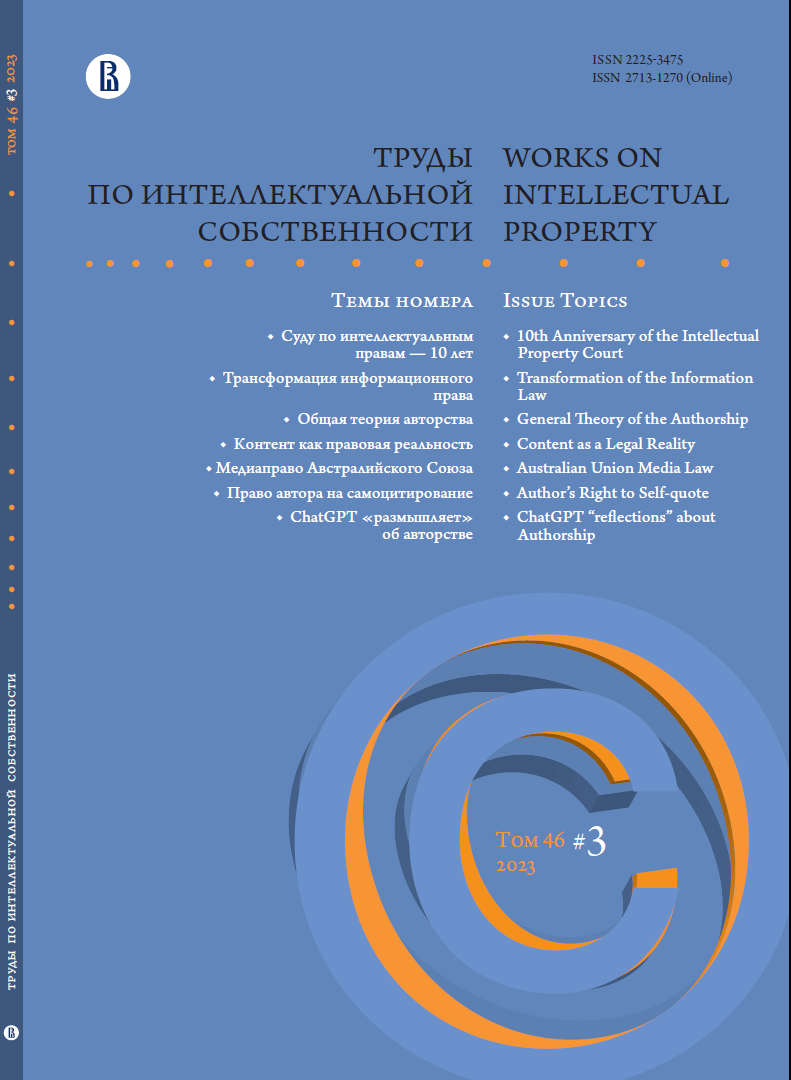AUTHOR’RIGHT TO SELF-QUOTE AMONG OTHER AUTHOR’S RIGHTS
Abstract
The article analyzes the problems associated with the reproduction in scientific works of fragments from previously published studies, which received the name “self-quoting” or “self-plagiarism” in the doctrine. Exploring the legal essence of the right to such reproduction, the authors prove that it is a personal non-property right of the author, arising from the content of the constitutional right to freedom of literary, artistic, scientific, technical and other types of creativity.
With the introduction of a total check of the level of originality of submitted scientific works, the fragments of works previously published by the author contained in them are regarded as “borrowed”, which becomes an obstacle to the admission of dissertations for defense. According to the authors, the denial of the possibility of using excerpts from previously published scientific articles in the dissertation means that the applicant is required to conduct several studies: firstly, in the form of a dissertation, and, secondly, in the form of scientific articles related in content to the chosen issue, which contradicts the logic of scientific research and negatively affects its results.
Much attention is also paid to the characterization of the use by the author of fragments of his own texts from early works in scientific articles and monographs without reference to the source, which violates the provision enshrined in paragraph 1 of Art. 1274, the norms of scientific ethics and deprives readers of such a work of the opportunity to compare the original and presented author's texts and identify the presence or absence of novelty in the latter.
After analyzing the judgments presented in the modern doctrine regarding the boundaries and rules of the competence in question, the authors formulate the following conclusions: firstly, about the lexical inconsistency of its nature with the term “self-plagiarism”, in connection with which they propose to call such reproduction “unfair self-quoting”, and, secondly , about the absence of bad faith of the author in all cases when the fragments of previous works reproduced by him are accompanied by an indication of the original source. It is proved that in most cases such a reproduction does not indicate the author's dishonesty, his laziness or desire to mislead readers, but his scientific consistency, devotion to the scientific ideas defended and the desire to attract new supporters to them.


